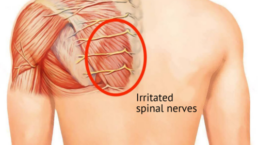Combating Vitamin D Deficiencies
In Australia, you would think with our long, hot summers, active sporting lives and afternoons spent at the beach that we would all have an abundance of Vitamin D. Unfortunately, this is not the case, with vitamin D deficiencies being present in over 30% of Adults. These can range from mild to moderate, to severe cases of deficiency.
This can unfortunately lead to:
- Bone and joint pain
- Increase the risk of falls and bone fracture in older people
- Result in rickets (when very serious)
- Impact on unborn children in mothers with vitamin D deficiency
You may also experience fatigue or weak muscles! Those most at risk of vitamin D exposure are people with naturally dark skin (melanin filters out ultra violet b radiation and therefore reduces the bodies vitamin d production) and those with little or no sun exposure (e.g. the elderly, pregnant mothers, people with office jobs and those that deliberately avoid sunlight). As we get older we also get worse at producing vitamin D.
Where can we get vitamin D from????
We have a few options for our vitamin d intake:
- First and most obvious is the sun. In Western Australia we need 2 – 3 minutes a day in summer and 2 – 3 hours per week in June/July
- Secondly is our diet. Fatty fish like Salmon and Tuna, Egg Yolks, Cheese are your best options. Fish like Salmon has 526 IU per 100 grams.
- Thirdly is supplementation (like we sell in our clinic). This can be either taken in liquid form or as a tablet. Both are beneficial, choose based on personal preference.
What is the optimum level?
Osteoporosis Australia recommends most people should have a vitamin D level of at least 50 nmol/L at the end of winter, which means people may have levels 10 – 20 nmol/L higher during summer (60-70 nmol/L). It is recommended that you get a blood test first, to check your deficiency levels. Contact your local GP for a referral.
By Rory Campbell
Related Posts
Is Sitting the New Smoking?
4 July 2016
Australians are spending more time each day sitting. As technology and infrastructure has been improving, more Australians are incorporating less healthy habits into their lifestyle. Sitting may in fact have more in common with smoking than you might think.
0 Comments2 Minutes


